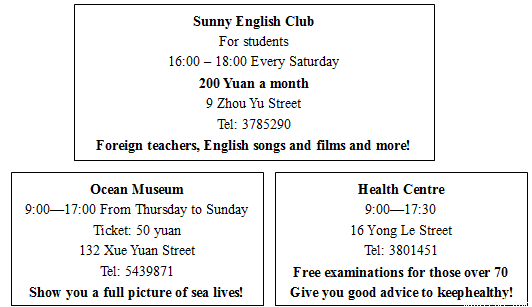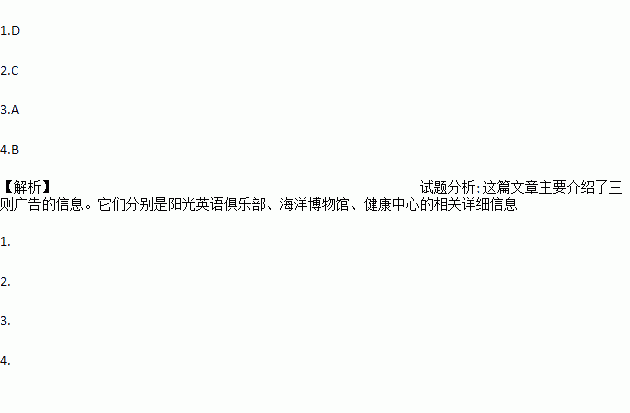题目内容

1.Sunny English Club is for _____.
A. nurses B. policemen
C. businessmen D. students
2.You will pay _______ if you want to stay in the English club for half a year.
A. 300 yuan B. 600 yuan
C. 1200 yuan D. 2400 yuan
3.You can visit Ocean Museum _______ .
A. on Saturday B. on Wednesday
C. on Monday D. anytime
4.If you are interested in the life of fish, you should go to ______ .
A. Health Centre B. Ocean Museum
C. Sunny English Club D. 16 Yong Le Street
练习册系列答案
相关题目

